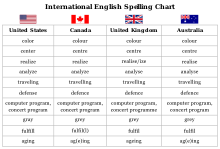Definition and Scope of British English
– British English refers to the varieties of English native to the United Kingdom.
– It can refer specifically to English in England or broadly to the collective dialects of English throughout the British Isles.
– Variations exist in formal English in the UK, such as the use of different adjectives in different regions.
– There is a degree of uniformity in written English within the UK.
– Spoken English in the UK varies considerably more than in other parts of the world.
Global Influence of British English
– Former British colonies and Commonwealth countries tend to follow British English.
– English used within the European Union also follows British English.
– Both British English and American English are taught in China.
– The UK government actively teaches and promotes English worldwide.
– The UK operates in over 200 countries.
History and Dialects of British English
– English originated from Anglo-Frisian dialects brought to Britain by Germanic settlers.
– Old English was influenced by Scandinavian and Norman invasions.
– The influence of Latin and French led to a more intellectual and abstract English.
– The cohabitation with Scandinavians simplified and enriched English grammar and vocabulary.
– English developed into a borrowing language with a large vocabulary.
– Dialects and accents vary among the four countries of the UK.
– Major divisions include English English, Ulster English, Welsh English, and Scottish English.
– Each dialect has borrowed words from other languages.
– In the 15th century, there were almost 500 ways to spell the word ‘though’ within the major dialects.
– The University of Leeds is conducting research on British regional dialects.
Received Pronunciation and Regional Accents
– About 2% of Britons speak Received Pronunciation, a region-less accent.
– Received Pronunciation is used as a model for teaching English to foreign learners.
– The South East of England has significantly different accents, such as Cockney.
– Londoners speak with a mixture of accents based on various factors.
– Estuary English, with features of Received Pronunciation, has gained prominence.
– Phonological features of British English, such as the pronunciation of certain letters and diphthongs, vary across dialects.
Language Changes and Standardization of British English
– The English language in the UK is governed by convention rather than a formal code.
– Dictionaries record usage rather than prescribing it.
– The standardization of British English is a result of dialect leveling and a perception of social superiority.
– The introduction of the printing press in the mid-15th century contributed to the standardization of British English.
– Samuel Johnson’s ‘A Dictionary of the English Language’ was a significant step in English-language spelling reform.
– Vocabulary and usage in British English change over time, with words borrowed from other languages and neologisms being frequent. Source: https://en.wikipedia.org/wiki/British_English
British English (BrE, en-GB, or BE) is the set of varieties of the English language native to the United Kingdom. More narrowly, it can refer specifically to the English language in England, or, more broadly, to the collective dialects of English throughout the British Isles taken as a single umbrella variety, for instance additionally incorporating Scottish English, Welsh English, and Ulster English. Tom McArthur in the Oxford Guide to World English acknowledges that British English shares "all the ambiguities and tensions [with] the word 'British' and as a result can be used and interpreted in two ways, more broadly or more narrowly, within a range of blurring and ambiguity".
| British English | |
|---|---|
| Native to | United Kingdom |
| Ethnicity | British people |
Indo-European
| |
Early forms | |
Standard forms |
|
| Latin (English alphabet) Unified English Braille | |
| Official status | |
Official language in |
|
| Language codes | |
| ISO 639-3 | – |
| IETF | en-GB |

Variations exist in formal (both written and spoken) English in the United Kingdom. For example, the adjective wee is almost exclusively used in parts of Scotland, North East England, Northern Ireland, Ireland, and occasionally Yorkshire, whereas the adjective little is predominant elsewhere. Nevertheless, there is a meaningful degree of uniformity in written English within the United Kingdom, and this could be described by the term British English. The forms of spoken English, however, vary considerably more than in most other areas of the world where English is spoken and so a uniform concept of British English is more difficult to apply to the spoken language.
Globally, countries that are former British colonies or members of the Commonwealth tend to follow British English, as is the case for English used within the European Union. In China, both British English and American English are taught. The UK government actively teaches and promotes English around the world and operates in over 200 countries.
